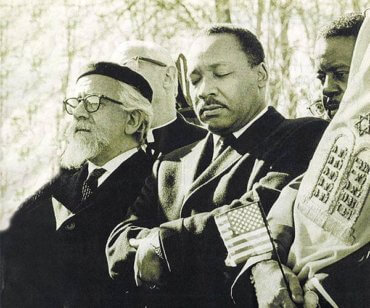
Why Are We Forced To Be Sad in the Three Weeks?
Dear Jew in the City,
Why are we forced to be sad in the Three Weeks?
Best,
Aaron
Thanks for your question, Aaron. For those who may not be aware, the Three Weeks is a period of increasing mourning that runs from the seventeenth day of the month of Tammuz through the ninth day of the month of Av. This period commemorates the events that led to the destruction of the two Temples. Starting from 17 Tammuz, we avoid music, haircuts and weddings. When the month of Av begins, Ashkenazim observe the Nine Days and the mourning practices intensify; we don’t swim or shower for pleasure, and we avoid meat and wine. (Sephardim observe this degree of mourning the week of Tisha b’Av, however many days that turns out to be.) Tisha b’Av – the ninth day of Av – is a day of full-blown mourning. We fast, sit on the floor, and don’t even greet one another. (The mourning practices described above are not exhaustive.)
That being said, I’m curious about the source for your assertion that we’re “forced to be sad.” The Rambam says, “When the month of Av enters, we reduce our joy” (Hilchos Taaniyos 5:6). The Rema says, “Our practice is to be strict and not hold weddings from 17 Tammuz until after Tisha b’Av” (OC 551:2). The Kitzur Shulchan Aruch says, “Since the tragedies of the destruction (of the Temple) started on 17 Tammuz, our practice is to observe a little mourning from that day until after Tishah b’Av” (122:1). None of these sources mention an obligation to be sad.
In fact, I’ll take things a step further. The Three Weeks fall during the summer, when many people – in particular, students – have their vacation. We take trips and send kids to camp during the Three Weeks. Sure, we avoid certain activities, such as swimming during the Nine Days, but we generally expect to have a good time. I’ve never seen somebody chastised for laughing at a joke in the Three Weeks. Similarly, I’ve never seen a rabbi approach a crying person in the Three Weeks and say, “You’re doing great; keep it up!”
Bottom line, it’s hard to legislate a person’s feelings, and I’m skeptical that our Sages even attempted to do so. Let me explain my understanding of the mourning practices of the Three Weeks. (Be patient; it’s going to take me a minute to get there.)
When putting on our shoes, the halacha is to put on the right shoe followed by the left, and then to tie the left shoe followed by the right. The reason for this is because the right has general precedence in halacha, but when it comes to tying, the left has priority because tefillin are tied on the left. When people ask me why there should be such a halacha, which seems to serve no practical purpose, I tell them that it serves to keep us thinking about God and His mitzvos in whatever we do, even something as mundane as putting on our shoes.
Similarly, we are bombarded by messages all day long: “Just do it.” “Think different.” “I’m lovin’ it.” These have an effect on us. But the Torah commands us to recite the Shema twice a day: “Listen, Israel: Hashem is our God; Hashem is One.” This is meant to cut through all the noise and remind us (a) that Hashem exists, (b) that He’s our God and (c) that He is One. We need this constant Torah reinforcement to counteract all the other things shouted at us throughout the day.
Also along these lines, there’s a concept called mitoch shelo lishmah ba lishmah – that we’d rather a person study Torah and perform mitzvos for ulterior reasons because, through doing so, they will come to internalize the messages and will end up doing these things for the appropriate reasons (Pesachim 50b, et al.).
Through these examples, I think you see that the Torah and halacha require us to do certain things in order to sensitize us to important concepts. So Chazal (the Sages) never commanded us to be sad, but they did obligate us to observe certain mourning practices. The reason they did this, I believe, is to sensitize us to what we’ve lost.
The greatest thing a person can experience is proximity to God, and the greatest deficit a person can experience is distance from Him. The Temple was the place where we could enjoy the greatest possible closeness to God but, never having experienced it ourselves, we don’t know what we’re missing. So, every summer, we observe increasing degrees of mourning practices in the hopes that we will explore why. Why are we not listening to music? Why are we not eating meat? Why are we sitting on the floor? What exactly did we lose that Chazal felt merited such behavior?
So, no, I don’t think anyone ever commanded us to “be sad.” That wouldn’t be practical. But I do think that if more people looked into why we’re acting like mourners, they might be sad organically, because we have lost something truly wonderful.
Sincerely,
Rabbi Jack Abramowitz
JITC Educational Correspondent
Follow Ask Rabbi Jack on YouTube
If you found this content meaningful and want to help further our mission through our Keter, Makom, and Tikun branches, please consider becoming a Change Maker today.







